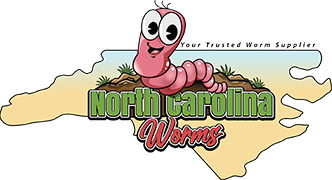Unknown Facts About North Carolina Worms
Unknown Facts About North Carolina Worms
Blog Article
The Ultimate Guide To North Carolina Worms
Table of ContentsNorth Carolina Worms Fundamentals ExplainedOur North Carolina Worms IdeasAll about North Carolina Worms8 Easy Facts About North Carolina Worms ExplainedThe Facts About North Carolina Worms Uncovered
Nature can take several years to compost or biodegrade organic matter. The process of thermophilic composting can speed this procedure up to a matter of days or weeks.The germs need wetness, oxygen, and a food resource to prosper. When transforming no much longer produces warmth with appropriate dampness and oxygen, the thermophilic microorganisms have mainly died-off and the mesophilic germs (70-100 F.) take over the decay process.
This is a little simplified yet mainly accurate. Worm composting happens in the mesophilic variety (70-90 F.) The worm bed linens is a combination of different carbon materials. The worm container temperature level is managed by adding just percentages of nitrogen materials at once. Occasionally the nitrogen materials are also pre-composted (thermophilic) prior to introducing to a worm bin.

Indicators on North Carolina Worms You Need To Know
Some examples: Bed linen temperatures, dampness degrees, kind of composting worms, types of bed linen products, different food resources, and length of time prior to spreadings gather all have an influence on the top quality of spreadings (or lack thereof). By much, these "regulated problems" have the largest influence on the total top quality of the worm spreadings.
Particular crops are recognized to expand better with various kinds of castings. The benefits of worm spreadings reach much past assisting our plants grow.
This includes living raw material, dead natural issue, and very dead raw material (humus) - North Carolina Worms. Let me throw out a couple of terms and see if any one of these recognize to you: degraded, farmed-out, disintegration, nitrogen run-off, algae blooms in lakes, wind disintegration, silt, chemicals, chemical fertilizers, irrigation, water contamination, fish eliminates, bees passing away, low insect populaces, mineral exhaustion, much less nutrient-dense foods, drought problems, loss of topsoil, compaction, and I can take place for life
(https://www.sooperarticles.com/authors/792209/north-carolina-worms.html)Possibly it is time for an adjustment? To understand the importance of Healthy soil, let's examine what Un-healthy dirts bring to the table. Unhealthy dirt is a major factor to climate modification.
Some Of North Carolina Worms


This boosts the populace of bacteria in the soil. The CEC is a measurement of your dirts fertility capacity. The higher your CECthe extra fertile your dirt is or can end up being - Lenoir NC Worms For Sale. Worm spreadings are near neutral pH. They can make acidic soils extra neutral or alkaline soils a lot more acidic. Spreadings are granular and aid to make aeration room in the soil.
Worm castings hold water like a sponge. Worm castings assist to create "dirt aggregates" which reduce compaction issues in your dirt.
Casts aid to form soil aggregates. Worm castings applications in addition to natural garden compost products can improve sandy or clay soils profoundly. Loosened friable dirt that retains water well is much less prone to crusting. No discussion of the benefits of worm castings is complete without attending to the NPK classification. NPK N = Nitrogen P = Phosphorous K = Potassium The NPK classification is an artificial or chemical fertilizer dimension.
An Unbiased View of North Carolina Worms
This is ALL they provide. Below is the issue. If I wish to sell my worm spreadings as a fertilizer (which they are), my state regulators need me to have an NPK classification on my label. Most worm spreadings will test 1-0-0 on an NPK examination. Chemical fertilizers are not in a plant-available kind.
They additionally do not provide lots of points that healthy plants need to grow. (plant hormonal agents, humic acids, and so on) However, worm castings function entirely differently than chemical fertilizers.
You add worm spreadings to your dirt and the lifecycle of the microorganisms create nitrogen, phosphorous, and potassium for your plants. They additionally generate plant hormones, humic acids, and other things. They produce this in a plant-available form, so your plant does not need that much. It is a two-way cooperative relationship with your plants and the soil.
The Buzz on North Carolina Worms
This lab examination outcome is possibly not essential if you are a gardener. However, if you are a farmer of a specific crop (ie.tomatoes, cannabis, and so on) and understand specific kinds of worm spreadings work well for you, it is important information. My pointer is to function with a worm spreadings manufacturer and ask for the lab examination outcomes.
Report this page